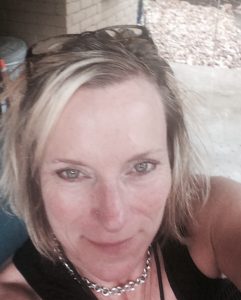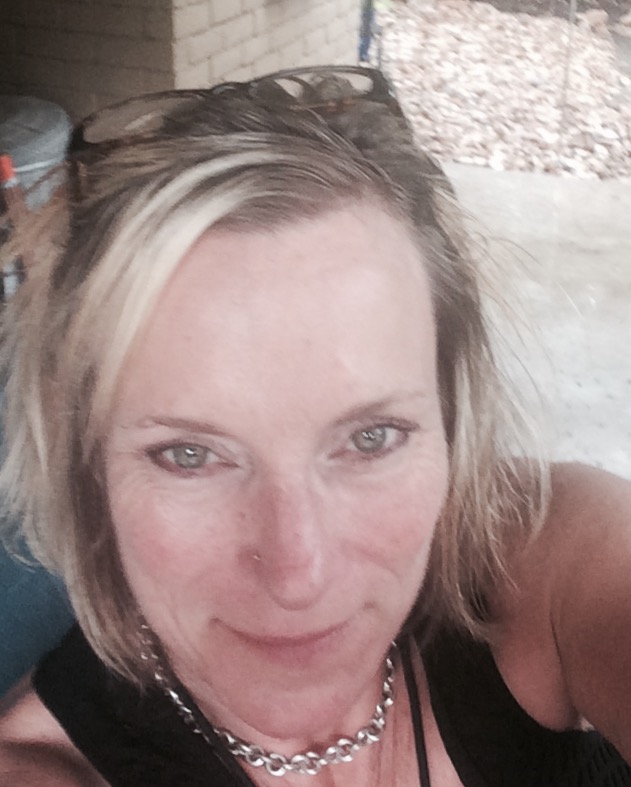Locked Out
Hopping onto the bathroom vanity made of fake marble, that my mother called elegant, I studied my face. The answer to my question had to be hiding somewhere in my features. Why wouldn’t other kids play with me?
With desperation, I searched my reflection for what made me unacceptable. Two slightly slanted green eyes studied identical ones. My Mom called them hillbilly eyes but they looked okay to me, so I moved to my forehead. Slightly burned skin with a smattering of freckles looked just like every other kid’s head, so I studied my hairline.
“You got my widow’s peak. See how your hair forms a slight v in the center? That’s how my hair used to look.” In my mind, my mostly bald Father smiled encouragingly at me. His expression was that of someone who had won a competition. Briefly, I imagined my Mother’s strong-willed DNA battling my Father’s equally obstinate genetic matter. It would have been a fight to the death. There was no clear winner in me. Both of their campaigns were well represented in my shorter than average frame .
“Yep, that’s from my side of the family. Widow’s peaks were common when I was a child. Appalachia is full of them.” My father’s grin grew broader. His genes had planted a flag on my head.
Looking at the small sun-bleached hairs that that formed a v, I wasn’t sure if a widow’s peak was a good thing or not. My Father’s pleasure might not have meant more than he was happy to see proof of his patronage walking around. Taking one more glance at my hairline, I dismissed it. A few whips of hair couldn’t explain others reactions to me.
Now my nose was something to think about. My siblings always laughed, in a way that made my skin itch, when someone said I had my Father’s nose. All of my siblings had perfectly shaped pug-noses. Mine was a straight line with no upturn at all. It had come from my Native American Grandmother right through my Dad. Every time I complained about it, my Mom told me to just be grateful that mine wasn’t as large as my Father’s. That was easy for my Mother to say. Her nose was a pug.
The rest of my face didn’t seem unusual. What was it that other people could see? It had to be visible. Just that morning, the new kids in the neighborhood had run away away from me. My stomach began to ache as the memory of mocking laughter coursed through my childish form.
The countertop began to feel uncomfortable on my skinned- knees, and I slid from the unyielding surface. Frowning at myself in the long mirror, I longed to look like anyone but me. Then, I longed to be anyone but me.
 Amanda exhibited signs of mental-illness prior to preschool. This led to abuse in and out of her home. At nineteen, Amanda spent three months in a psychiatric hospital. Diagnosed with Manic-Depressive Disorder, life began anew. Four years later, she quit her medication. In 1987, Amanda received her BS in Sociology. Because the shame associated with mental-illness, Amanda did not seek help for over twenty years. After her second hospitalization in 2013, Amanda began writing. It is her hope to demystify an illness that manifests both physically and mental
Amanda exhibited signs of mental-illness prior to preschool. This led to abuse in and out of her home. At nineteen, Amanda spent three months in a psychiatric hospital. Diagnosed with Manic-Depressive Disorder, life began anew. Four years later, she quit her medication. In 1987, Amanda received her BS in Sociology. Because the shame associated with mental-illness, Amanda did not seek help for over twenty years. After her second hospitalization in 2013, Amanda began writing. It is her hope to demystify an illness that manifests both physically and mental
Amanda can bee found on Twitter.








Stories like this, from the roots of realization, make such a positive impact on others, even those that are coping themselves and out there trying to help others. Thank you for this.
Hi Amanda. I follow you on Twitter, and think your website is fabulous, and such a great way to share stories and promote awareness around mental health issues.
Because of this I’ve nominated you for The Blogger Appreciation Award. Thank you so much for your contributions!
http://familyfurore.com/uncategorized/blogger-appreciation-award-2018-thank-you/
KAT,
I just saw your comment. Thank you so much for your kind comments and for the nomination!!!
???
Much deserved!
Sharing our stories helps others often in ways we don’t hear about, so wanted to show my appreciation for your words.
<3